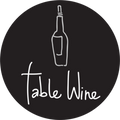After 20 years in this business, I’m beginning to realize that a lot of folks have trouble describing what they do and don’t like about the wines they’re drinking. Trust me, learning to talk about wine is a lot like learning a new language. The more you do it, the better you become at it. But if you’re just getting started, I’ve got some tips to help you communicate with your wine monger or the “cork dork” in your life. And the more you start talking about wine, the more you’re going to enjoy it.
IS IT DRY OR IS IT SWEET?
Let’s get one thing clear — dry means the absence of sugar and sweet means the presence of sugar. The role of sugar in wine is important, as it reacts with yeast to create alcohol. For dry wines, all of the sugar is “burned up” and converted into ethanol. Alternatively, some producers want to leave some of the natural fruit sugars in their wines. To achieve this, they cool down the vat to a temperature where fermentation stops. Why you ask? That’s for another day’s lesson.
Now with that boring chemistry behind us, let’s move on. Just because a wine is fruity doesn’t mean it’s sweet. Remember, wine is made from fruit (aka grapes), so one of the most prevalent flavors in wine should always be fruit. But if all of the sugar is converted into alcohol, which usually yields a level of 12-14% or more, then you’ve got yourself a dry wine. Fruity and dry? Yes, it totally exists! And sweet wines are inferior? That’s a complete myth!
Is this making sense? If not, keep reading. We’ve got more territory to cover and things will begin to make sense. I promise!
Conclusion: Dry means no sugar, sweet means contains sugar. And just because a wine is fruity doesn’t mean it’s sweet.
LET’S TALK ABOUT FOOD
Aha, one of my favorite topics! I love food, I love wine, and I love combining the two, but that’s not exactly what we’re talking about here. If you can talk to me about the sorts of foods and other drinks you like and how you like them prepared, I guarantee you I can point you towards the right wine. And as you begin to fully use your senses while enjoying wine and other drinks and foods, your vocabulary for and appreciation for wine will increase.
So let’s talk about fruits. What kinds of fruits do you like? If you love grapefruit, lime, kiwi, and pineapple, you prefer tart and refreshing acidity and you are probably drawn to high acid whites like Sauvignon Blanc, Gruner Veltliner, and Albarino. However, if your favorite fruits are more mildly acidic varieties like apples, pears, and peaches, then I’d bet you prefer wines with similar profiles. Think creamy and buttery Chardonnay or Viognier or Pinot Grigio.
The same rules apply to red wines. For fans of red cherries, strawberries, cranberries, and pomegranates, you are probably drawn to lighter, more red fruited wines like Pinot Noir, Grenache, and Sangiovese. But if it’s blueberries, blackberries, and plums you love, then you probably love Cabernet Sauvignon, Syrah, and Malbec.
And it’s not just the fruit we should be talking about, it’s also the way that fruit is prepared. If you find yourself constantly munching on fresh and raw fruits, then it’s only natural that you like zestier, more vibrant, un-oaked wines with juicy and mouthwatering personalities. But if you like your fruit baked, like into a pie or a cobbler, then you’re probably going to like richer, softer, often barrel aged wines with plusher textures and more warm fruit and spice nuances.
We can talk about other foodstuffs too. How do you like your coffee — with or without cream? What about herbs and spices? Yep, talk to us about which ones you love and hate. At the end of the day, wine mimics many different flavors and textures. And the more you can talk about those attributes, the better you can communicate with your wine purveyor to secure the perfect bottle of wine. And before you know it, you’ll be talking about wine like a sommelier.
One last thing. If you’re like me, you like it all. You like acidic fruits, you like pie, you like your coffee black some days and with cream on others. No problem! You have a sophisticated and evolved palate. So just tell us what you’re in the mood for today!
Conclusion: Talk to us about the fruits, the foods, and the other drinks you like, but also talk to us about how you like them prepared. Not only will you help us help you, you’ll also start speaking the language of wine!
So there you go. A quick primer on how to talk about wine. Whether you are trying to describe what you’re tasting to your wine group or if you’re trying to tell your new wine shop what you do and don’t like, using these simple strategies will help in a big way. One other thing — shop at a local, independent wine shop staffed by people who love wine and who already speak the language. But of course if you’re reading this, you probably already do that! Cheers and thanks for reading folks. Use the contact form below to ask questions or add commentary.
Josh Spurling
Owner/Operator at Table Wine
828.505.8588
josh@tablewineasheville.com



